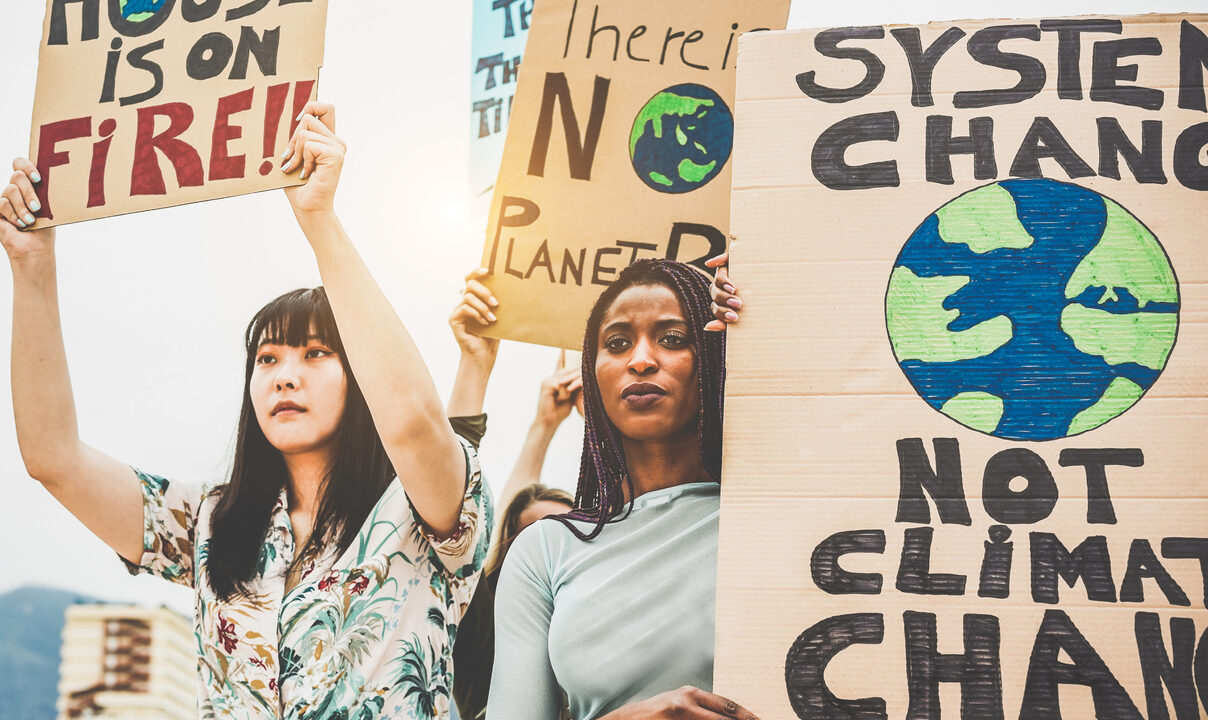The Young Worker Listening Project (YWLP), an initiative of the Young Worker Committee of the Labor Network for Sustainability, is an effort to challenge the “workers versus the environment” narrative by collecting and developing stories of how young workers are pushing climate activism in their jobs, in their unions, and in their communities. In recent years, we’ve seen the right attempt to pit labor and climate activists against each other through an argument that environmental regulations will take away good union jobs. But as leaders in our respective unions and labor-climate network, we’ve learned that building worker power and fighting climate change are connected and that young workers are especially eager to tackle the climate crisis through workplace organizing. The young people we have interviewed as part of our Young Worker Listening Project recognize the jobs versus environment choice is a false one. They want the labor movement to be a mechanism for enacting major economic and environmental change, and they can envision a way to get there.
The Young Worker Committee was formed in the summer of 2020 to strategize how best to organize young workers to take an active role in bridging the labor and climate movements. We had a hunch that engaging young workers on issues – like climate change – that extend beyond mandatory subjects of bargaining would help revive the labor movement and give it the power necessary to lead a just transition to a sustainable future. Indeed, for the first time in a long time, young people are largely pro-union. According to a 2020 Gallup poll, 71 percent of people ages 18-34 approve of unions, compared to 63 percent of other age groups. Young people have also been at the forefront of recent climate activism, including the climate strikes of 2019 and protests against the Dakota Access Pipeline at Standing Rock. They’ve also driven the explosion of youth-led climate organizations like the Sunrise Movement and Zero Hour.
In April, we launched a survey to gather information about young workers’ experiences with pollution and extreme weather, the social issues they care about, the ways that climate change impacts their plans for the future, and their confidence in their own job security as well as the economic security of their communities and industries. So far, we’ve surveyed nearly 300 young workers (ages 18-35) in both union and non-union workplaces and interviewed dozens of young workers across 15 states. We have shared the survey through labor publications, social media, and outreach to union locals and other worker advocacy groups. United Food and Commercial Workers (UFCW) Local 21 in Washington state disseminated the survey to their young membership; as a result, we received more than 80 responses. The local is interested in figuring out what their members think about climate change, whether the union should be prioritizing climate action, and what that would look like. The young UFCW members we’ve interviewed were surprised and excited to receive the survey – they had never received communication from their union around climate change and are eager to see what their local might do with this information.
More than 92 percent of our survey respondents stated that they are concerned about how climate change will impact their future and 87 percent stated that they believe addressing climate change offers opportunities for good paying jobs. All of our interviewees shared the ways that climate change impacts their working conditions: they dispose of huge amounts of waste everyday, they work in extreme heat and inclement weather, they construct pipelines and Amazon warehouses when they know the communities they live in need better roads and more affordable housing. Many also shared experiences of attempting to reduce waste in their industries, make their unions more democratic, bargain on climate issues in contract negotiations, and respond to the ways climate change is impacting their industries and communities. But they also report being met with resistance from the leadership of their unions, who see this sort of activism as outside the realm of the union’s task to bargain over wages, hours, and working conditions – or who don’t take them seriously because of their youth. Young workers also reported feeling torn between labor and climate organizing. Many of the young workers we interviewed emphasized that they are playing multiple roles: working a paid job, working within their unions in formal and informal roles, caring for parents and children, participating in mutual aid efforts, and educating themselves and their loved ones about issues like climate, racial, and economic justice. They need an avenue into climate activism that works with rather than against their identities and responsibilities in the labor movement.
Through the rest of this year, the Young Worker Committee will continue to collect surveys, conduct interviews, and hold small group strategy workshops. We don’t know exactly where the small group discussions will take us – part of the challenge is that not enough work has been done to understand the experiences of young workers in the labor movement and to engage them around the issues they care about. The young worker program of the AFL-CIO is defunct, and although many national unions and locals have young worker constituencies, there are no formal avenues for these groups to connect and strategize nationally and across industries. We’re committed to doing the work of listening to young workers without attempting to predict the conclusions they will come to, and we’re looking forward to small group discussions as an opportunity to bring more young workers into our organizing committee. Our goal is to share findings from these conversations and to hold workshops to give young workers the tools to be climate activists within their unions.
We’ve built an organizing committee of young union leaders who have experience in pushing for climate initiatives in their locals to assist in every aspect of the project, from drafting and disseminating the survey to conducting interviews to brainstorming ways to engage interviewees. Our committee lives the values we want to see in our unions and our entire society. We discuss problems candidly as they emerge and develop strategies to respond to them through open conversation; we are transparent about our capacity and the many responsibilities we are holding; and we are non-hierarchical and fluid, creating space for each of us to participate as much as we are able while remaining valuable members of the team. There is a real need for more spaces like ours where folks can share strategies and experiences across industries and grapple with how to start difficult conversations within their unions around climate change.
If the social unrest and “labor shortages” stemming from the COVID-19 pandemic have taught us anything, it is that young workers are no longer willing to accept the established norms that only grow chasmic wealth disparities while overheating the planet. Conditions are ripe for a transition to a sustainable economy that centers the priorities of working people – and organized labor can and should be leading this movement. Through the YWLP, we are finding we don’t need to build a bridge between the labor and climate movements; young people are the living bridge. We just need to provide the space, support, and resources to allow them to serve as powerful, transformative voices within the labor movement.



